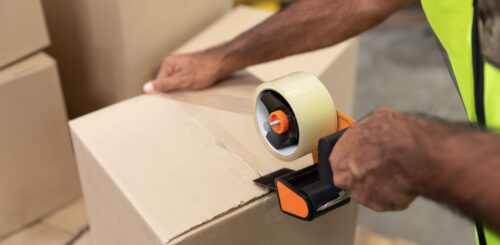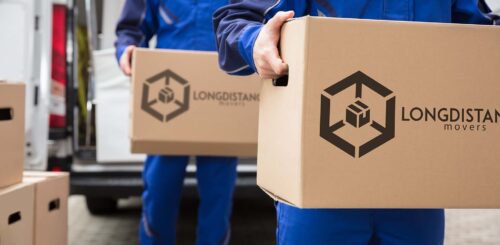Relocating to a new place can be an exciting adventure, but it’s also one of the most stressful experiences a person can go through. And when it comes to packing, it’s easy to get overwhelmed by the sheer amount. So it’s important to consider what not to pack when moving.


Relocations can be a drag, and they can also become costly. But above all – they are stressful and overwhelming. From finding a new home to saying goodbye to your old one, there are so many things to consider. In this ultimate safety guide, we’ll be exploring what not to pack when relocating across the country. Because let’s face it, some things just aren’t worth the hassle (or potential danger) of transporting them thousands of miles away. So grab a cup of coffee, take a deep breath, and let’s dive into the world of decluttering!
Why Should You Know What Not to Pack When Moving Across the Country?
Knowing what not to pack when planning a move to another city is essential for a variety of reasons. Firstly, it can help you avoid potential safety hazards during the relocation. Certain items, such as flammable or hazardous materials, may not be allowed for transport using long-distance moving services, and attempting to transport them this way can be dangerous.
Additionally, leaving behind items that are easily replaceable, like old furniture or bulky older electronics, can save you time but also save you money and effort in the long run. Lastly, downsizing your belongings before relocation can help you start fresh in your new home and simplify the relocation process overall. By taking the time to learn what not to pack, you can ensure a smooth and efficient relocation across the country.
Research Moving Regulations Before Hiring Long-Distance Movers
If you’re planning a long-distance move and thinking about hiring professional cross-country movers, it’s important to research moving regulations before making any decisions. Every state and country has its own set of rules and regulations regarding relocation companies, and failure to comply with these regulations can result in legal trouble, loss of property, or even physical harm.
Before hiring a long-distance moving company, make sure to research their credentials and confirm that they are licensed and insured. The Federal Motor Carrier Safety Administration (FMCSA) requires all long-distance movers to be registered with the agency and to have a USDOT number. You can verify a company’s registration and licensing status on the FMCSA’s website.
In addition to licensing and insurance, it’s also important to understand the specific regulations for the state or country you’re relocating to. Some areas have restrictions on the types of items that can be transported, while others may require additional permits or inspections for certain types of moves. For example, some states prohibit the transport of plants or animals across state lines without special permits. Reach out to your movers and find out what they won’t move.


When Relocating Get Rid of Hazardous Materials
If you’re wondering what to get rid of when moving, it’s all the hazardous materials that are probably found in your garage or tool shed. These are substances that pose a risk to the health and safety of people, animals, or the environment. They can cause fires, explosions, toxic fumes, and other dangerous situations if not handled properly. As a result, they are strictly regulated and prohibited from being transported across the country by professional movers.
If you’re in need of some packing tips for relocating in a hurry, keep in mind that these materials are important to get rid of. Common hazardous materials include flammable liquids (gasoline, oil, and cleaning solvents,) aerosols (spray paint and insecticides,) batteries (rechargeable and non-rechargeable,) chemicals (pesticides, fertilizers, and pool chemicals,) propane tanks and other compressed gas containers, and firearms and ammunition.
How to Get Rid of Them Properly
It’s important to properly dispose of hazardous materials to prevent environmental damage and ensure public safety. Here are some tips on how to dispose of them:
- Contact your local waste management facility to find out about community hazardous waste disposal programs.
- Check with local auto parts stores or repair shops to see if they accept used motor oil and other automotive fluids for recycling.
- Follow the manufacturer’s instructions for the disposal of household chemicals and cleaning products.
- Empty propane tanks and other compressed gas containers can be taken to a propane exchange program or a local hazardous waste disposal site.
- Contact your local police department for information on how to dispose of firearms and ammunition.
In summary, hazardous materials pose a significant risk to public health and safety and are therefore prohibited from being transported across the country by professional movers.


Perishable Items Also Are Something You Should Not Pack up When Moving
When it comes to relocations, no matter whether you’re relocating to another state alone or with family, there is another thing to consider. Perishable items such as food, live plants, and flowers are among the things to throw away when moving due to the potential risks involved. Perishables can spoil or wilt during transportation, leading to unpleasant smells, leaks, and even mold growth. Additionally, they can attract pests like rodents, which can damage your other belongings.
Using the packing service for things like kitchen items is smart, but transporting perishables also carries a risk of foodborne illness. Food that is not stored at the proper temperature can become contaminated with bacteria, leading to illness or even food poisoning. To avoid these risks, it’s best not to fret about how to pack liquids or other foods. Instead, dispose of perishable items before the move.
However, if you have non-perishable food items that are unopened and non-expired, consider donating them to a local food bank or shelter. Similarly, potted plants and flowers can be given away to friends or family members or donated to local schools or community centers.


Keep Your Valuable Items Close By
When it comes to valuable items such as jewelry, family heirlooms or important documents, it’s best to keep them close by during a move rather than transporting them with a relocation company. While reputable relocation professionals will take precautions to protect and ship your belongings with care, there is still a risk of loss or damage during transportation. Valuable items may be stolen, lost, or damaged during the move, and it can be difficult to recover their full value through insurance claims.
Pack Jewelry
Pack your jewelry in a small bag or pouch and keep it with you in your purse or carry-on bag with relocation essentials during the move.
Important Documents
Keep important documents, such as passports, birth certificates, and insurance policies, in a folder or file box and transport them in your vehicle or carry-on bag.
Family Heirlooms
Pack family heirlooms, such as photo albums or artwork, in a sturdy box and transport them in your vehicle. Alternatively, consider shipping them to your new home using a trusted and insured shipping company.
Long Distance Movers Are Not Licensed to Transport Pets
When it comes to relocations across the country, relocating pets can be challenging. Not only are long distances stressful for animals, but cross-country moving services are not supposed to transport pets. This means that pet owners must make arrangements for their furry friends separately and on their own.
Transporting pets across the country can be challenging due to several reasons. Firstly, pets can experience relocation stress and anxiety during transportation, particularly when they are unfamiliar with the mode of transportation or when they are separated from their owners. Additionally, certain breeds may not be able to travel due to health concerns, such as respiratory problems or difficulty regulating body temperature. Moreover, different states and countries have different regulations and requirements for pet transport, including vaccination and quarantine requirements.
To safely transport pets across the country, consider using a pet transport service. These services specialize in the transportation of pets and can provide a safe and comfortable journey for your furry friend. Pet transport services can also help with the necessary paperwork and compliance with state and country regulations. However, make sure to research the company and its policies before booking.
If you want to take your pet on a plane flight with you, find out how they are transported in the following video.
Hire Long Distance Movers and Consult Them About What to Bring When Moving Across the Country
When moving across the country, it can be overwhelming to decide what to bring and what to leave behind. In this case, consulting with long-distance movers can be a valuable resource. Experienced movers have likely seen it all and can provide advice on what items to bring and what items may be more trouble than they’re worth.
It’s important to keep an open mind and listen to their advice, as they have a wealth of experience and knowledge in the field of long-distance moving. With their help, you can make informed decisions and ensure a smooth and stress-free move across the country.
Auto Transport
Move your car across the country in an open or enclosed trailer – for an affordable fee. We offer car transport as a standalone service, but you can bundle it with your household move and get a hefty discount.
Learn moreMoving Insurance
All your stuff is secure with Long Distance USA Movers, but in case something does happen to it, there’s a moving insurance policy in place. We offer both basic Valuation Coverage and Full Value Protection.
Learn moreStorage Services
Our spacious climate-controlled units will protect your things until the drop-off. No need to worry about them because all items are labeled and secure, and each customer gets a dedicated unit mixup isn’t possible.
Learn moreWith the Right Tips, Your Move Will Be Safe
Moving across the country can be a stressful experience, but with proper planning and preparation, it can also be an exciting adventure. It’s important to do your research and take necessary precautions when planning a long-distance move. This includes researching moving regulations, properly disposing of hazardous materials and perishable items, ensuring the safe transport of valuable items, and finding safe and comfortable transportation for pets.
If you need your belongings transported safely and securely, contact Long Distance USA Movers and your move will be a breeze!
FAQ
What are the most common hazardous materials that cannot be transported across the country?
The most common hazardous materials that cannot be transported across the country include flammable liquids, aerosols, batteries, chemicals, propane tanks, firearms, and ammunition.
Can I transport my pets with my other household items?
Long-distance movers are not licensed to transport pets, so it’s best to find a pet transport service or transport your pets separately.
How can I properly dispose of hazardous materials before my move?
Contact your local waste management facility to find out about community hazardous waste disposal programs and follow the manufacturer’s instructions for the disposal of household chemicals and cleaning products.
Are there any regulations or restrictions on transporting firearms or ammunition across the country?
Yes, there are federal regulations and state-specific regulations on transporting firearms or ammunition across the country.
How can I safely transport valuable items, such as jewelry or important documents?
The safest way to transport valuable items is to carry them with you personally, but if you must transport them with a moving company, document the items and their value, purchase additional insurance coverage, and confirm with the moving company that they have adequate insurance coverage.
Can I transport perishable food items across the country?
Perishable food items should not be transported across the country due to the risk of spoilage and foodborne illness.
What should I do with large or heavy items that cannot be transported across the country?
Large or heavy items that cannot be transported across the country should be donated, sold, or left behind.
What are the risks of transporting prohibited items across the country?
Transporting prohibited items can result in legal trouble, loss of property, or even physical harm.
How can I find out about federal, state, and local regulations for moving across the country?
Check with the Federal Motor Carrier Safety Administration (FMCSA) and state transportation authorities for regulations on relocating across the country.
Are there any items that moving companies typically prohibit from being packed and transported?
Relocation companies typically prohibit packing and transporting hazardous materials, perishable items, live plants or animals, firearms and ammunition, and items of high sentimental or monetary value.







